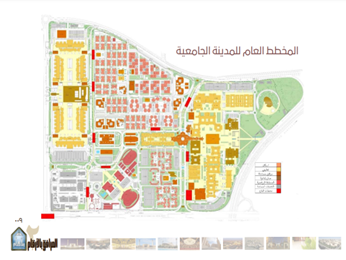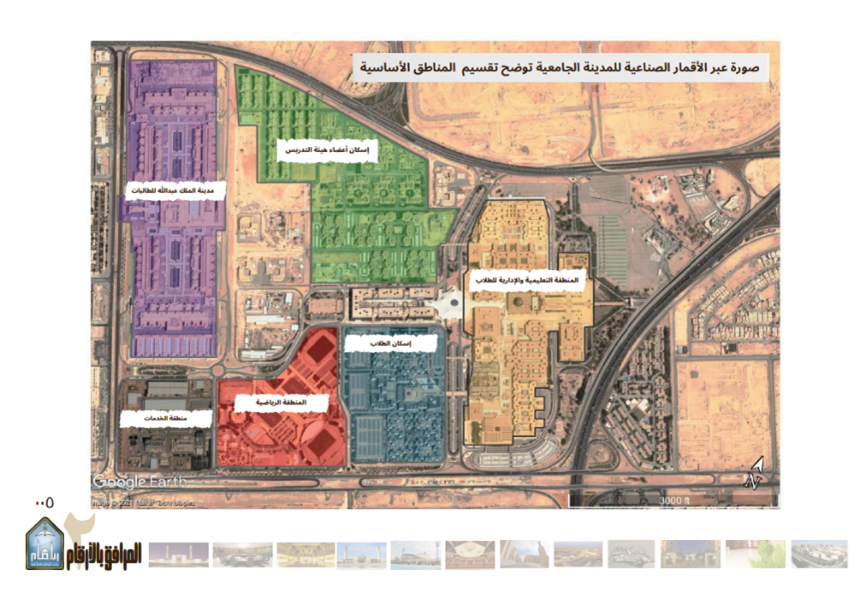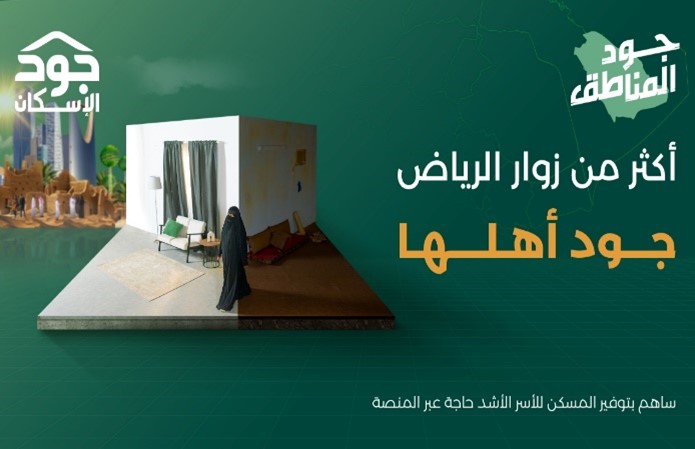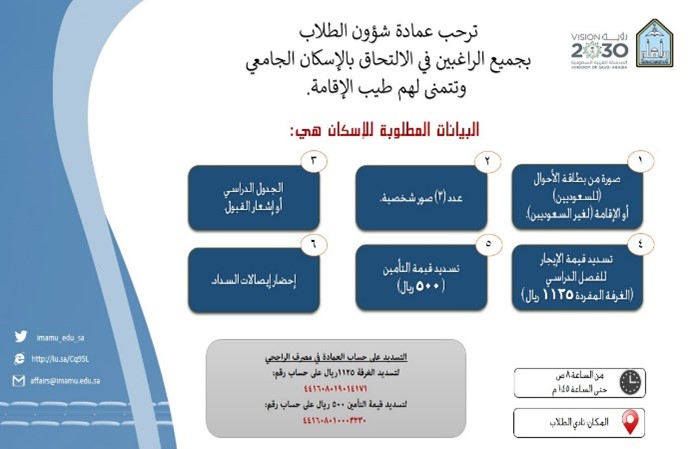
SDG 11 in Saudi Arabia: Sustainable Cities and Communities
Sustainable Development Goal 11 (SDG 11) focuses on making cities and human settlements inclusive, safe, resilient, and sustainable. Saudi Arabia, through Vision 2030, is addressing the rapid urbanization of its cities and regions by investing in sustainable urban development, enhancing infrastructure, and ensuring environmental preservation. This includes transformative projects and policies aimed at improving the quality of life for citizens while preserving the country's cultural heritage and natural environment.
Efforts by the Saudi Government to Achieve SDG 11
- Development of Smart Cities:
- Saudi Arabia is developing futuristic smart cities like NEOM, The Line, and Qiddiya, which integrate advanced technology and sustainability principles.
- These cities aim to enhance connectivity, promote green energy, and optimize urban planning for sustainable living.
- Urban Planning and Infrastructure:
- The government is modernizing transportation systems with projects like the Riyadh Metro, Haramain High-Speed Railway, and public bus networks in major cities.
- Sustainable urban planning prioritizes mixed-use developments, walkable neighborhoods, and green public spaces.
- Affordable Housing Initiatives:
- Programs like Sakani aim to provide affordable housing to citizens, ensuring equitable access to safe and livable spaces.
- Subsidies and financing options support homeownership among low- and middle-income families.
- Cultural Preservation:
- Saudi Arabia is actively restoring and preserving cultural landmarks, such as Diriyah and AlUla, as part of its efforts to maintain heritage and promote sustainable tourism.
- These initiatives create economic opportunities while fostering a sense of identity and community.
- Environmental Sustainability:
- The Saudi Green Initiative promotes reforestation, desertification prevention, and urban green spaces to combat climate change and improve urban livability.
- Renewable energy projects and waste management programs reduce environmental footprints in urban areas.
- Disaster Risk Reduction:
- Saudi Arabia has implemented disaster preparedness measures, including early warning systems and infrastructure resilience strategies, to address risks such as flooding and extreme heat.
- Urban planning incorporates risk assessments to ensure the safety and resilience of communities.
- Community Engagement and Inclusivity:
- Initiatives promote citizen participation in urban planning processes, ensuring that communities are inclusive and meet the needs of all residents, including marginalized groups.
SDG 11 at Imam Mohammad Ibn Saud Islamic University (IMSIU)
Imam Mohammad Ibn Saud Islamic University (IMSIU) contributes to SDG 11 by fostering sustainable practices on campus, promoting community engagement, and incorporating urban sustainability into its academic and research programs.
- Sustainable Campus Infrastructure:
- IMSIU integrates green building practices, energy-efficient systems, and water conservation measures into its campus design and operations.
- The campus features green spaces and pedestrian-friendly pathways, promoting a sustainable and healthy environment for students and staff.
- Academic and Research Programs:
- Courses on urban planning, sustainability, and environmental science equip students with knowledge about sustainable cities and communities.
- Research initiatives focus on topics such as smart city development, sustainable housing, and urban resilience.
- Community Outreach:
- IMSIU engages with local communities through workshops, seminars, and public lectures on sustainable urban development and environmental preservation.
- Partnerships with government agencies and NGOs support initiatives for affordable housing, cultural preservation, and disaster preparedness.
- Cultural and Heritage Preservation:
- The university emphasizes the importance of preserving Saudi Arabia's cultural heritage and integrating it into urban development.
- Events and projects highlight the role of Islamic principles in fostering sustainable and inclusive communities.
- Transportation and Mobility on Campus:
- IMSIU promotes sustainable transportation by encouraging the use of electric vehicles, bicycles, and carpooling for students and staff.
- The campus layout prioritizes accessibility and walkability, reducing reliance on vehicles.
- Awareness Campaigns:
- IMSIU organizes campaigns to raise awareness about sustainable living practices, waste reduction, and urban sustainability.
- Students and staff are encouraged to participate in tree-planting drives and recycling programs as part of their contribution to SDG 11.
Impact of IMSIU's Contributions to SDG 11
By incorporating sustainability into its campus design, educational programs, and community initiatives, IMSIU aligns its efforts with Saudi Arabia's broader urban development goals. The university fosters a culture of sustainability and inclusivity, preparing future leaders to address the challenges of urbanization and contribute to building sustainable cities and communities. Through these efforts, IMSIU supports both national priorities and global commitments to SDG 11.
Imam University Students Visit to Al-Faisal Museum of Arab and Islamic Art
https://imamu.edu.sa/news/Pages/news_21_5_2023_2.aspx
In conjunction with the International Museum Day, the Gifted and Talented Care Unit of the Vice Deanship of Student Affairs for Female Student Affairs organized a visit to the Al-Faisal Museum of Arab and Islamic Art for the unit's students, on the morning of Thursday, May 18, 2023.
This visit aims to raise awareness of the importance of museums in the development of societies as the living memory of peoples, and the Al-Faisal Museum contributes to the preservation and display of valuable holdings of Arab-Islamic arts, rare manuscripts, and memories of the late King Faisal, and the Al-Faisal Museum is one of the most important art museums that display a number of rare original manuscripts from the Qur'an of Al-Amsar acquired by the King Faisal Center for Research and Islamic Studies, in addition to a number of rare artifacts from various Islamic eras, and the museum includes more than 200 heritage pieces. Rare, distributed on household items, fighting and war machines, components of the book industry and its arts, medical machines, coins, wooden, pottery and textiles, and unique manuscript and printed Qur'ans from the second century to the fourteenth century AH, at the end of the visit, simple gifts were presented to the students from the Al-Faisal Museum for Arab and Islamic Art, and the students thanked the Deanship of Student Affairs for providing this enriching and useful visit.
New parking for Imam University students and the operation of frequency transport on buses at the beginning of the second semester
https://imamu.edu.sa/news/Pages/news19-2-1437-2.aspx
Imam Muhammad Ibn Saud Islamic University (IIU) is inaugurating the beginning of the second semester a frequency transfer service for students between the support parking lots located northeast of the campus and can accommodate 3500 cars, and the faculties of the university.
The official spokesman of the university, the media advisor to His Excellency the Rector of the University supervising the General Directorate of University Media, Dr. Abdulrahman Al-Nami, said that the university has allocated new parking spaces in front of Gate No. 6 with a capacity of 600 cars, and parking spaces on the eastern side of the university campus that can accommodate 2,000 cars.
He pointed out that this step comes out of the university's belief in the importance of providing the appropriate academic climate for its students, and out of its keenness to comfort students and preserve their time.
Center for sustainable development and city development
https://units.imamu.edu.sa/administrations/ithmar/FilesLibrary/Pages/mar3.aspx
| Center for sustainable development and city development |
| |
| |
| |
| the centre for sustainable development and city
development is concerned with providing a
variety of services that will improve urban infrastructure and public facilities and find appropriate solutions and alternatives to housing and civil barriers and problems. |
| |
| |
https://units.imamu.edu.sa/administrations/ithmar/FilesLibrary/Documents/%D9%85%D8%B1%D9%83%D8%B2%20%D8%A7%D9%84%D8%AA%D9%86%D9%85%D9%8A%D8%A9%20%D8%A7%D9%84%D9%85%D8%B3%D8%AA%D8%AF%D8%A7%D9%85%D8%A9%20%D9%88%D8%AA%D8%B7%D9%88%D9%8A%D8%B1%20%D8%A7%D9%84%D9%85%D8%AF%D9%86.pdf
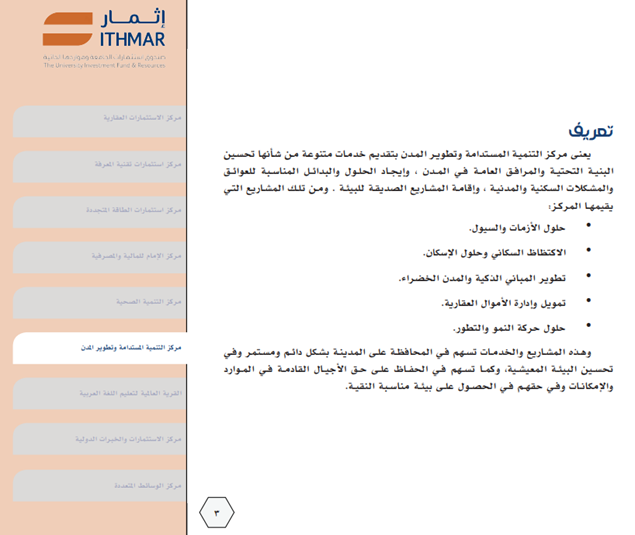
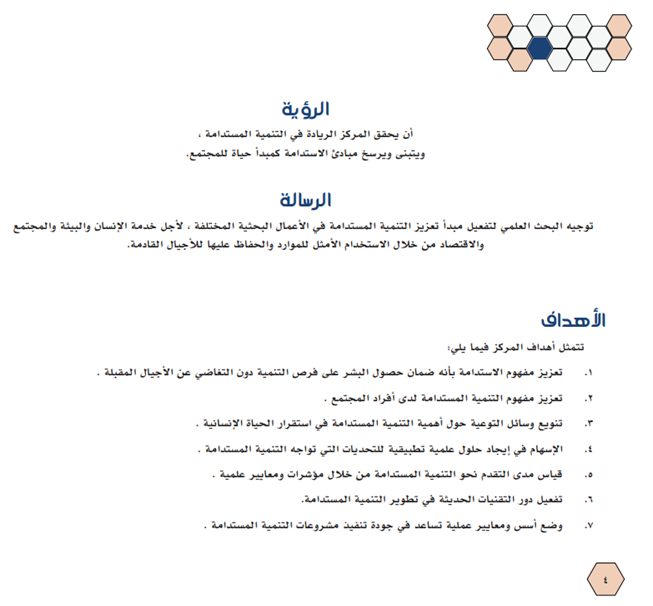
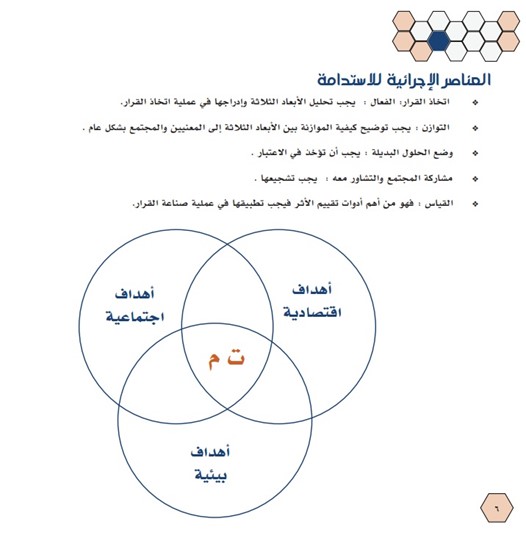
Neom is a dream coming in the world of smart cities
https://imamu.edu.sa/news/Pages/news-27-6-1439-6.aspx
The Faculty of Computer Science and Information held a forum on the story of Neom "Technology makes the future" on Wednesday, June 26, 1439. Which aims to inspire students and inform them of the importance of their specialization in the industry of the future in the presence of Karim from the Dean of the Center for the Study of Students H.E. Dr. Mudi Bint Ibrahim Al-Dabyan, where she praised the efforts of members and employees of the Faculty of Computer Science to prepare this forum, which keeps pace with the aspirations of Crown Prince Mohammed bin Salman bin Abdul Aziz - May God save him - and his dreamy vision of the Project Neom Smart City. The presence of the Undersecretary of Technical Affairs, Dr. Hind Afia, and a number of the center's agents. The college hosted: Dr. Ahmed Shabana, IBM's Senior Advisor in smart government, Professor Mohammed Al Khasil, Chairman of Machines Talk, Professor Hassan Dagheri, photography expert and board member of the Scientific Society for Art and Design, as well as the faculty members of the Department of Computer Science, Dr. Abdullah Al Shadi, Undersecretary of the Faculty for Graduate Studies and Scientific Research, Dr. Ahmed Al Ghamdi and Dr. Arib Al-Aweshaq.
The forum was opened by dr. abdullah al shadi, where he described the city of nyum as the dreamy city, which, god willing, will be the largest smart city in the world and explained what neom means to the kingdom and to every interested technical person who loves development, and that it embodies the dreams of the ambitious who attach their imagination to the future, as well as reviewed the foundations and components on which the city is based, which is one of the most important information technology and computing
dr. ahmed al-ghamdi then spoke about the importance of the internet of things and took attendees on a journey to the near future where all devices are connected to the internet and communicate with each other to make our daily lives more luxurious and effective. he then revealed the infrastructure needed to activate this technology and the role of these devices in producing a huge amount of data that needs to be processed and concluded by reviewing expectations for the future of the internet of things and how these devices will become micro-devices.
Artificial intelligence is a component of neom, and in this context, dr. arib al-aweishq provided a quick overview of this broad science. she explained the meaning, the sciences on which it was based and its applications in our daily lives. al-aweishq also reviewed the types of approaches and algorithms used in them. she stressed the importance of preparing for the future and opportunities to benefit from automated manufacturing as an important source of economy.
Dr. ahmed shabana then talked about smart cities and how the whole world has become smarter because of the internet of things, the interaction of its devices in a variety of ways and its ability to analyze the data it collects and to deduce new information. he also reviewed a number of solutions employed in smart cities. he was also keen to clarify the different skills that the specialist needed to work in the field, particularly non-technical skills, and stressed their importance and the importance of innovation at present.
Mr. Mohammed al Khasil then spoke about the opportunities for entrepreneurship that smart cities will provide, the importance of reconciling smart city solutions with the framework in which they exist, conveying the summary of his personal experience in technical entrepreneurship, and the challenges faced by entrepreneurs in this field and explaining how to overcome them. he also explained the importance of finding people who believe in the idea because it is a major reason for its success. he encouraged students and showed his willingness to embrace outstanding projects in the field of iot and artificial intelligence.
Mr. Ahmed Degrairi then took the audience with his interesting talk on a photo trip to the site of the city of nyum, in which he reviewed the stunning nature of the hills, beaches and depths of the sea and painted a beautiful painting linking the beauty of the city with the values of our society that will inhabit it. he conveyed his experience in a meeting with his vision of this city, his royal highness prince Mohammed bin Salman bin Abdul Aziz, and his enthusiasm in making all the details of the city a reality in the near future.
The forum was also the author of an exhibition showcasing the efforts of college staff in the fields of IoT and ARTIFICIAL INTELLIGENCE, as well as IBM and MachineszTalk reviewing examples of the technologies they provide.
Visit to the faculty of computer science and information to the industrial cities authority
https://units.imamu.edu.sa/colleges/ComputerAndInformation/activities/Pages/activities--4--16-11-1435.aspx
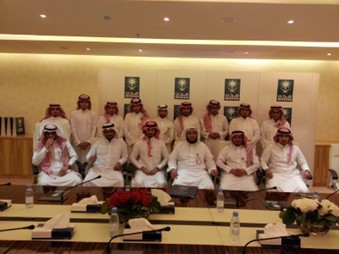
Within the programs of the Faculty of Computer Science and Information and its student activities, the College represented by the Department of Student Activity organized a scientific visit on Thursday, 9/7/1435 H to the Industrial Cities Authority for a group of students of various levels and disciplines where the Authority is considered one of the government sectors with rapid and remarkable development, it recently received the first place as the best working environment, and this visit included access to the latest projects worked by the Authority and the most prominent techniques used, including:
• EModon is an integrated electronic transaction system in providing integrated services that meet the needs of investors, and puts the customer at the centre of attention in meeting all needs.

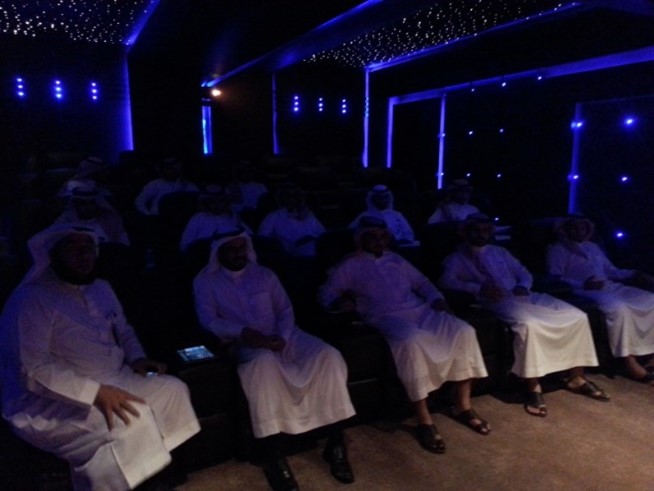
• Gis, which contains all maps and survey information for industrial cities, has made it possible through a city maps service. through this service, you can easily visit any industrial city, learn about the types of industries in it, know existing factories, service facilities, logistics services and more information and utilities.
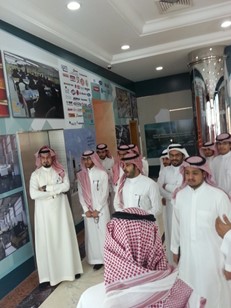
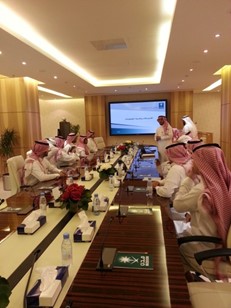
Many other systems, such as factory pollution follow-up and other systems, have also been accessed to facilitate the follow-up and control of plant facilities.The visit included a film screening of students in which a brief overview of the authority and its beginning, history and development were presented over the years.
On this occasion, the college, represented by student activity, offers its sincere thanks and appreciation to the rector and the dean of the college for their continued support, to their student children by supporting the educational process with extracurricular programs that have contributed, thank god, to expand the students' orbits and horizons and worked to open channels of communication between the college and the government and private sectors, which has had the impact seen in attracting many college children to work in those entities and praise their scientific and personal levels.
SDG 11: Sustainable Cities and Communities
Promotion of Arts and Heritage
Imam Mohammad bin Saud Islamic University (IMSIU) recognizes the vital role of arts and heritage in building sustainable communities. Through its various initiatives, the university has seamlessly integrated cultural preservation and artistic expression into both its academic programs and community outreach efforts. Public access to IMSIU's extensive libraries, both physical and digital, ensures a wealth of resources for students and the broader public. Additionally, the university's Museum of the History of Arabic and Islamic Sciences showcases the contributions of Arabic and Islamic scholars, serving as a vital educational resource for the community. These efforts reflect IMSIU's commitment to making cultural and academic resources accessible, enhancing the cultural enrichment of its community.
Cultural Engagement
IMSIU's active contribution to Sustainable Development Goal (SDG) 11 is evident through several key initiatives. One notable example is the Center for Foundational Research and National History (مركز بحوث التأسيس والتاريخ الوطني), under the Deanship of Scientific Research, which seeks to strengthen Saudi historical identity, improve research quality related to the establishment of the First Saudi State, and promote national awareness. Furthermore, the university hosts important cultural events, such as the lecture titled "Arabic Language as the Official Language of the Kingdom of Saudi Arabia: The Relationship of the Arabic Language with Identity, Culture, and Historical Heritage." This lecture emphasizes the role of the Arabic language in shaping cultural identity and preserving historical heritage.
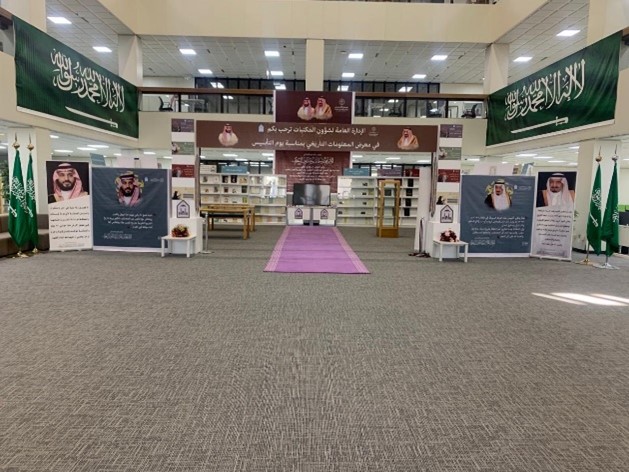
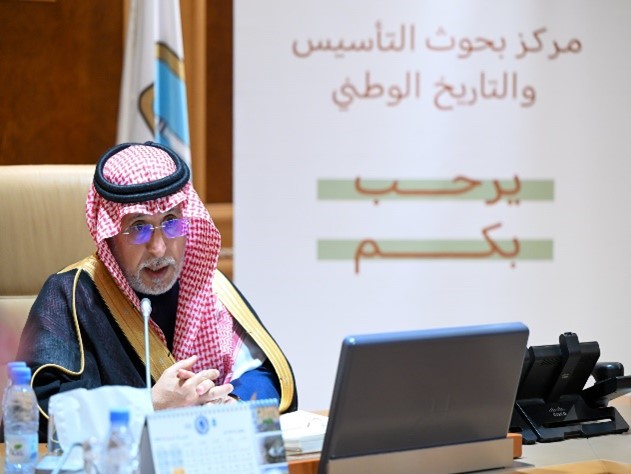
In addition to academic and cultural lectures, IMSIU frequently organizes workshops and seminars to promote sustainable living, equipping students with the knowledge and skills necessary to contribute to sustainable cities and communities. For example, the Student Affairs Department recently held an event titled "The Art of Saudi Cooking," further illustrating the university's dedication to cultural engagement and community involvement.
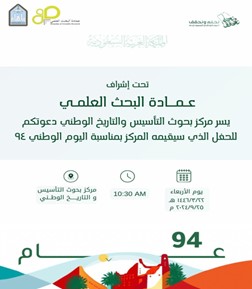
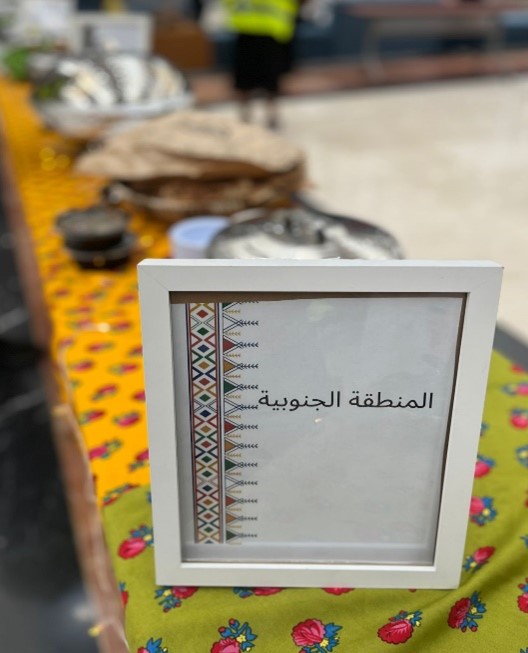
Theatrical Productions and Arts Programs
IMSIU also supports the arts through its theater and arts programs, which serve as a creative platform for students to explore societal values, heritage, and contemporary issues. The university's theater productions highlight the intersection of culture, education, and community identity, reinforcing the importance of cultural sustainability. By nurturing artistic expression and appreciation, IMSIU strengthens the cultural fabric of the community, further contributing to the objectives of SDG 11.
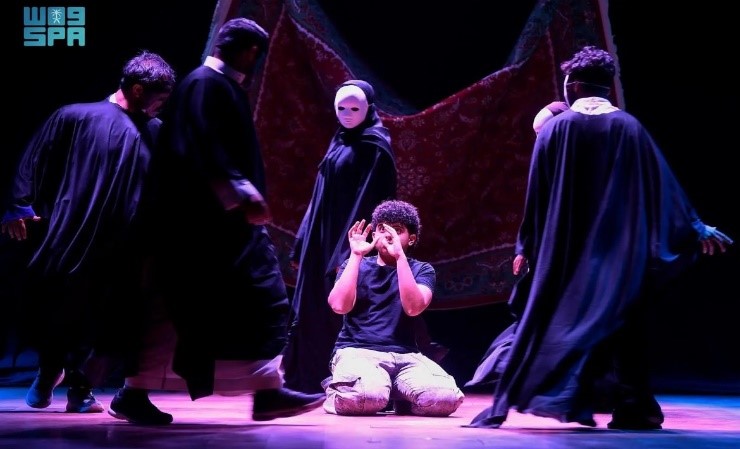
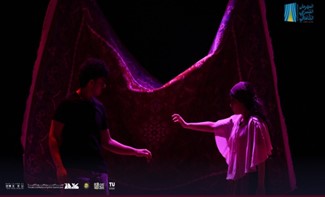
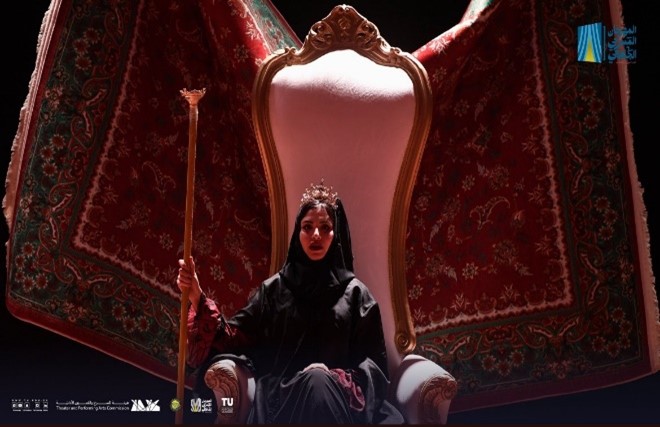
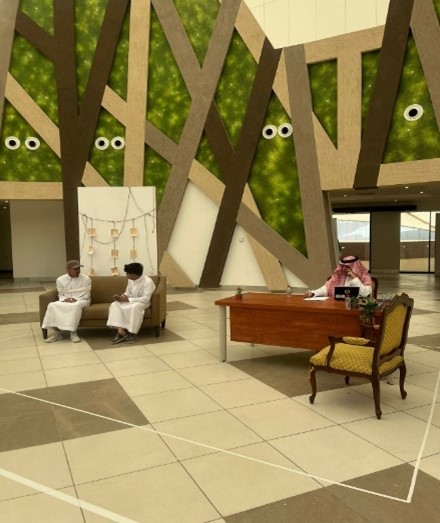
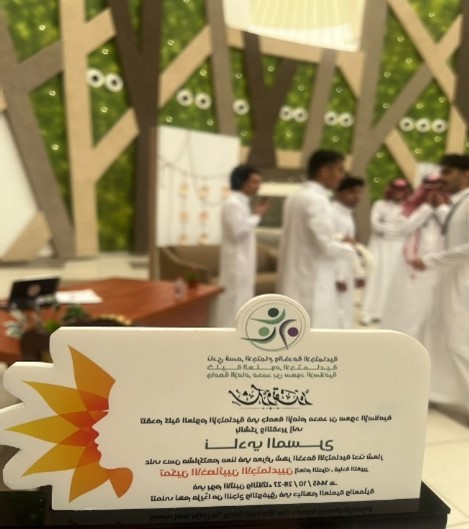
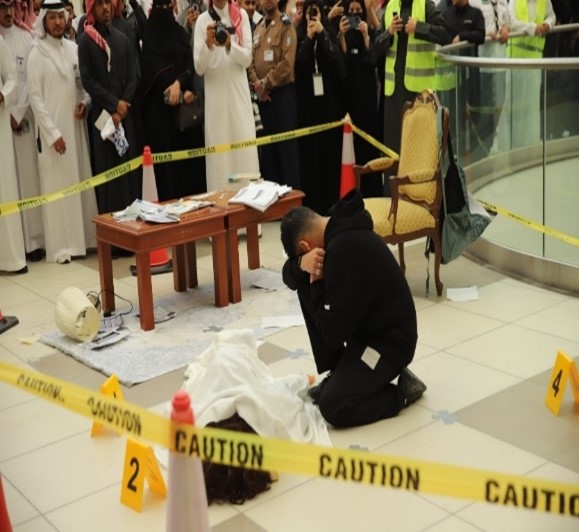
Commitment to Sustainable PracticesEducational Programs
Teaching courses like Decision Support Systems, Insurance Liability & Property, Respiratory System, and Psychology of Creativity directly contributes to SDG 11: Sustainable Cities and Communities. Here's how each course aligns with the goal:
Decision Support Systems: This course helps students learn to analyze data for urban planning and resource management, essential for creating resilient and sustainable cities.
Insurance Liability & Property: By understanding the role of insurance in community resilience, students gain insights into how to protect against risks and facilitate recovery from disasters, which is vital for sustainable community planning.
Respiratory System: This course emphasizes the importance of public health, particularly in managing air quality and pollution in urban areas, which is crucial for promoting healthy urban environments.
Psychology of Creativity: This course fosters innovative thinking and problem-solving skills, enabling students to develop creative solutions for urban challenges related to sustainable development and community well-being.
Pedestrian Access
IMSIU prioritizes pedestrian access on campus, creating an environment that encourages sustainable commuting practices and enhances the overall campus experience.
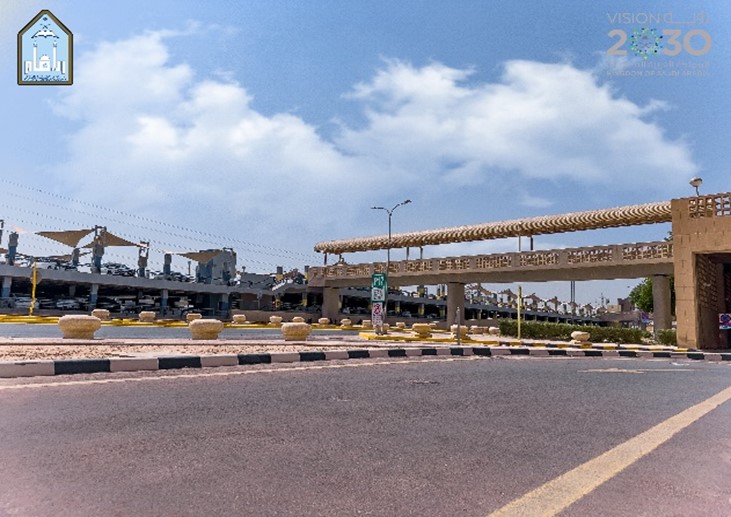
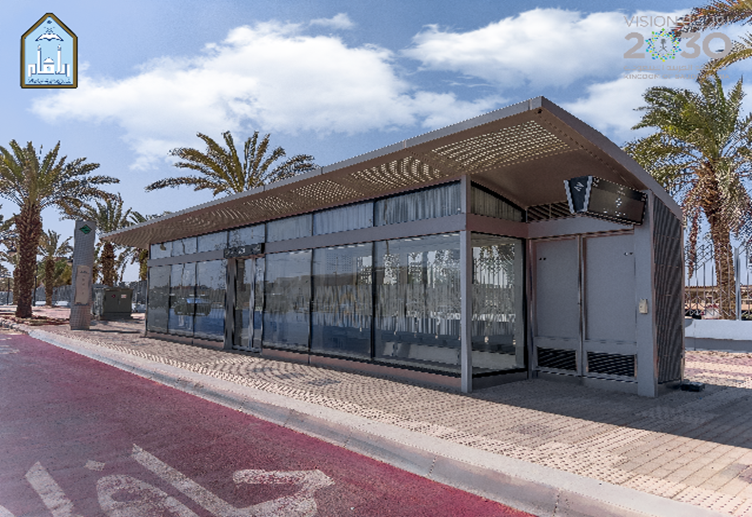
Green Buildings and Environmental PoliciesThe university has integrated sustainable building practices into its development projects. Recent constructions on campus adhere to environmentally friendly standards, focusing on energy efficiency and resource conservation. This initiative not only minimizes the campus's environmental impact but also serves as an educational model for students and the broader community in sustainable architecture and urban planning. Furthermore, IMSIU has signed an agreement with the National Energy Efficiency Services Company, "ترشيد," to rehabilitate university buildings and promote energy efficiency.
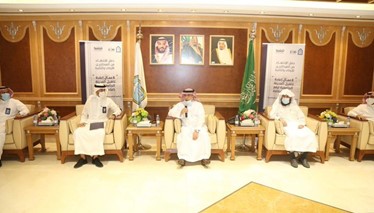
Digital Transformation for Sustainability
IMSIU has embraced digitalization as a key strategy for sustainability. The adoption of e-systems, e-learning platforms, and digital resources has significantly reduced the need for physical materials, thereby minimizing waste and energy consumption. This shift to digital learning ensures that educational opportunities are accessible to a wider audience, promoting social inclusion and equal access to quality education. The availability of electronic services and online learning facilitates flexibility and supports remote work arrangements, further aligning with sustainable practices and reducing the need for daily commuting.
Community Engagement: Housing Initiatives
In addition to providing affordable housing for employees and students, IMSIU actively participates in community housing initiatives. The university joined the "جود المناطق" campaign organized by the Developmental Housing Foundation "Sakan," which aimed to provide over 10,000 housing units for vulnerable families across Saudi cities. This initiative utilized a national platform to support families in urgent need, encouraging contributions from university staff, students, and community members. By engaging in these efforts, IMSIU demonstrates its commitment not only to addressing housing challenges for its own community but also to promoting social welfare across the region, which are vital components of SDG 11.
